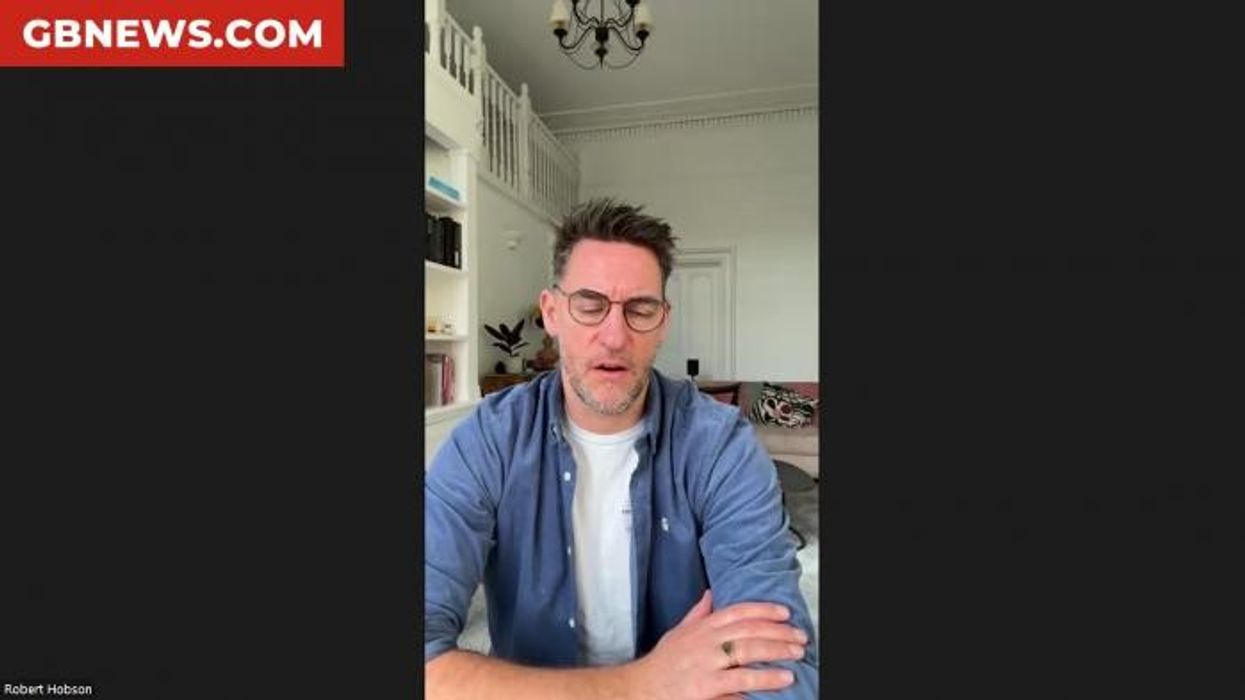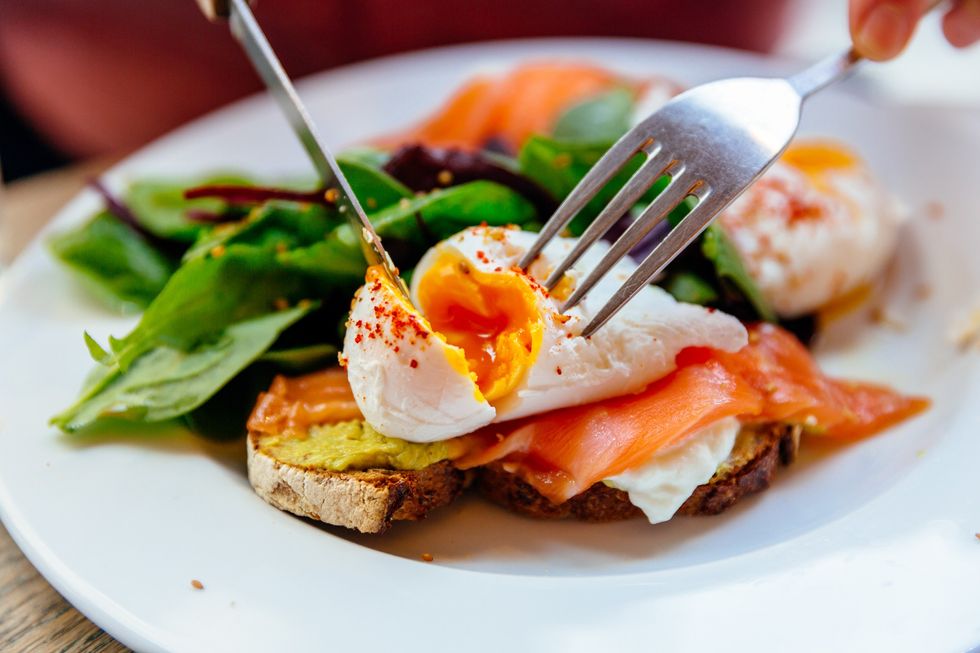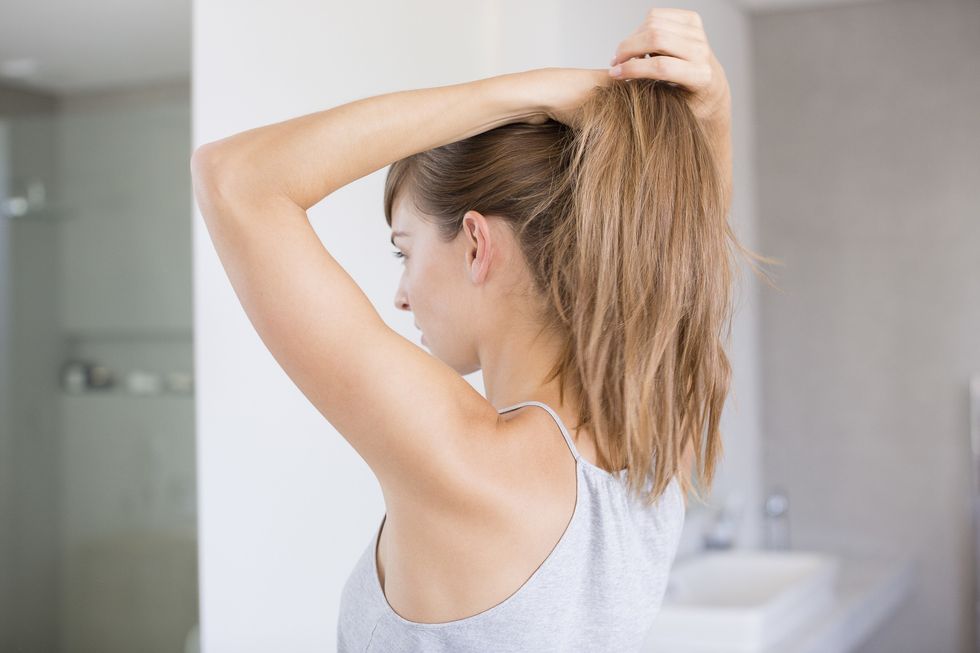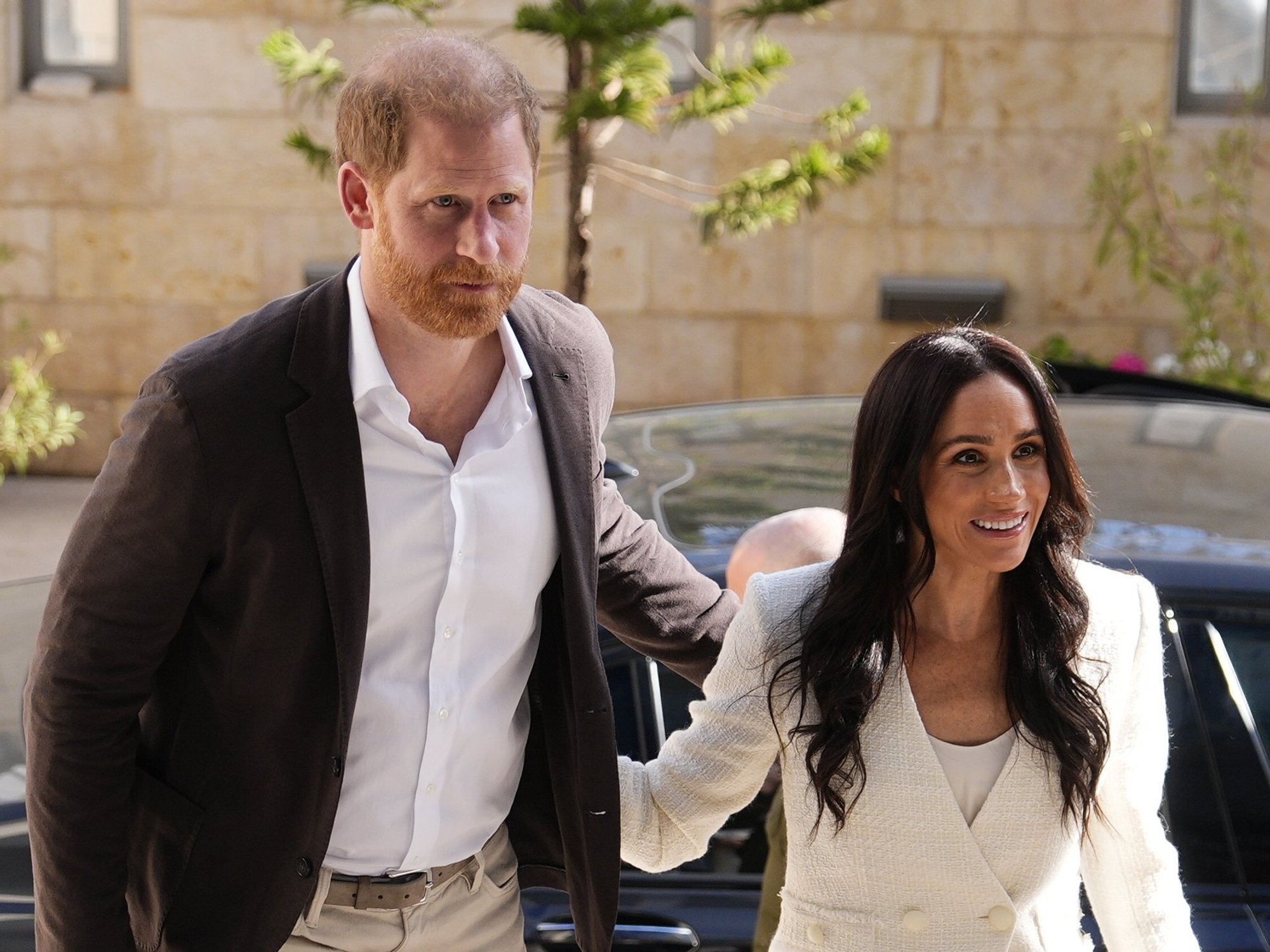'Works wonders for most!' Hair specialist names 3 foods that tackle thinning - 'Fight back without fancy treatments'

Hair expert Richard Ward explains how to combat hair loss
|GB NEWS

Incorporating foods such as eggs, spinach, and salmon into your diet could be the secret to better locks
Don't Miss
Most Read
While hair loss is very common in women, gradual thinning or sudden shedding can have a major effect on a person's confidence and mental health.
However, hope is not lost for those who are struggling with this issue. According to a hair specialist, there's plenty you can do at home to boost hair health and growth, restoring your luscious locks to their former glory.
Ada Buliga, from hair extensions brand Irresistible Me, weighed in on what causes hair loss in women and how to combat it.
The expert said: "Hair loss can sneak up due to ageing (think slower growth and shrinking follicles), hormonal shifts (like pregnancy, menopause, or PCOS), or stress from big life events.
"Health reasons like thyroid issues, low iron, or genetics can play a part too, and overdoing it with heat tools or tight styles doesn't help either."
So what can you do?
Hair loss is a very individual thing and must be assessed on a case-by-case basis. Unfortunately, there is no one-size-fits-all solution for those suffering.
However, Ada recommends various lifestyle tweaks, such as adjusting your diet, rethinking your go-to hairstyles, and investing in expert-approved products such as minoxidil.
"You can fight back without fancy treatments," the expert claimed. "Eat smart with protein, iron, and omega-3s from foods like eggs, spinach, and salmon to boost hair health.

'Eat smart with protein, iron, and omega-3s from foods like eggs, spinach, and salmon'
| GETTY IMAGES"Go easy on your hair: skip tight styles, cut back on the heat, and use gentle, sulfate-free shampoo two to three times a week, always conditioning after.
"For products, try minoxidil daily to kickstart growth (give it a few months) or massage in rosemary oil with coconut oil for a scalp pick-me-up."
The expert added: "If it's serious, a dermatologist can step in with professional options, but these home tricks work wonders for most."
Steroid injections, steroid creams, immunotherapy, light treatment, scalp reduction surgery, and hair transplants are among the hair loss treatments administered by professionals.
LATEST DEVELOPMENTS:

'Go easy on your hair: skip tight styles'
|GETTY IMAGES
If you're concerned about hair loss, it's important to consult an expert before making drastic lifestyle changes or investing in new products. This is because not all hair loss treatments work for everyone.
A GP, trichologist, or dermatologist can give you tailored advice for safe, healthy hair growth.
For those who go down the professional treatment route, doing your research and sourcing a qualified practitioner is essential.
Best foods for hair growth
According to hair transplant surgeon Dr Epameinondas Bonaros, strategic eating is key if you want to boost your barnet.
The expert revealed: "Your diet plays a surprisingly large role in the growth of your hair. Just like eating the right diet can keep you healthy and fit, the right food can help stimulate hair growth and keep your hair strong and healthy as you get older."
"Like the health of most functions of the body, the health of your hair largely depends on your nutritional habits. In particular, certain vitamin deficiencies can have a major impact on your hair, stemming from hair follicle cell metabolism issues. Micronutrients like vitamins and minerals play a critical role in normal hair follicle development and function.
"Ultimately, food sources are the healthiest and most natural choice when it comes to your nutritional balance.
Vitamins and nutrients shown to influence hair follicle cell development and health include vitamin D, vitamin A, biotin, selenium, iron, zinc, fatty acids, amino acids, and proteins."
Like Ada, Dr Bonaros recommended incorporating plenty of protein, iron, and omega-3s into your diet.
Fruit, additionally, provides plenty of antioxidants and vitamin C, while low-fat dairy products provide calcium.
According to the hair transplant surgeon, nuts and seeds — packed with zinc, selenium, vitamin E, and omega-3 fatty acids— are some of the best foods for hair growth.










